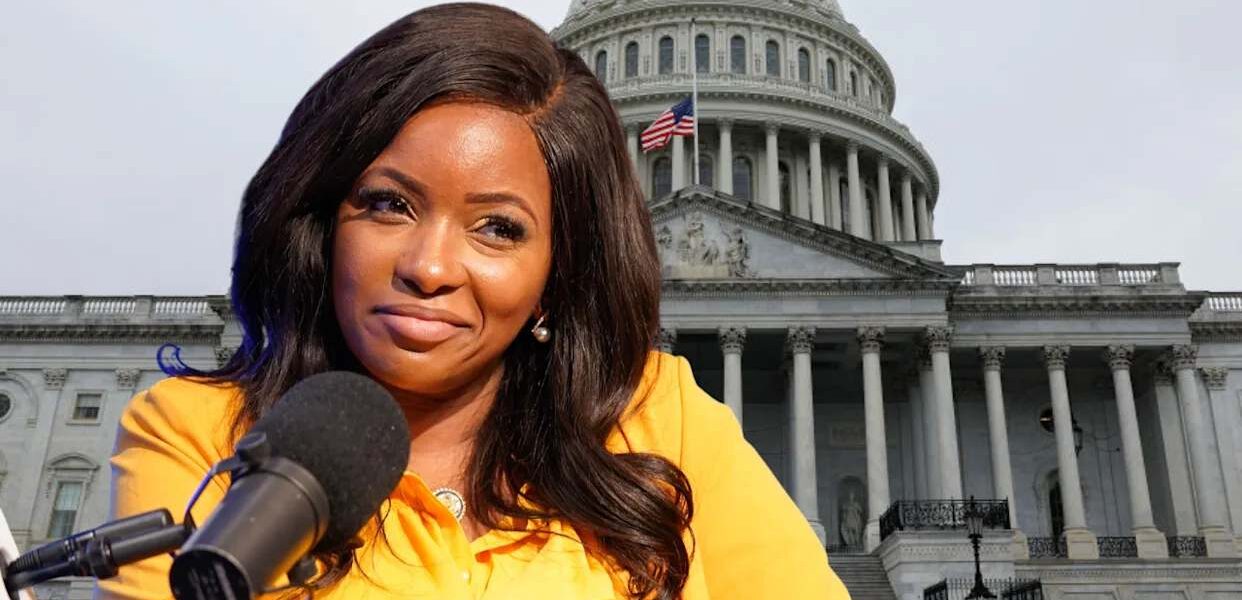The Constitution Is Not Optional: How GOP Hypocrisy Fuels Silence on White Supremacy While Demonizing Immigrants
They’re silent on white supremacist violence—but loud when it comes to demonizing immigrants. They skip past the real threats, then cry “law and order” while breaking the law themselves. And due process? Apparently, it only matters when it’s someone they like. But here’s the truth: that’s not how this works. The Constitution is not optional.
This contradiction—selective outrage combined with calculated silence—has become a hallmark of Republican politics in recent years. On issue after issue, GOP leaders amplify the dangers they find politically useful while minimizing or outright ignoring the ones that could implicate their own base. And nowhere is this clearer than in the stark contrast between how Republicans treat immigrants and how they treat white supremacists, January 6th rioters, and perpetrators of mass shootings.
A Manufactured Villain
For decades, Republicans have painted immigrants as the source of America’s greatest problems. They are portrayed in campaign ads as criminals, drug smugglers, job stealers, even terrorists—convenient scapegoats for everything from economic decline to urban crime. The rhetoric is not just exaggerated; it is deliberately dehumanizing.
Donald Trump’s infamous line about immigrants being “rapists” was not an accident—it was a calculated political strategy. State governors like Greg Abbott in Texas have continued this approach, sending buses of migrants to northern cities as political stunts. Conservative media follows suit, devoting hours of airtime to stories about crimes committed by undocumented immigrants, even when the actual numbers show that immigrants commit fewer crimes on average than native-born citizens.
Immigrants are, for Republicans, the perfect villain. They cannot vote in large numbers. They are easy to “other.” They unite a base that thrives on fear of change.
The Silence on White Supremacy

Yet when the threat is internal—when the perpetrators are white, often men, often explicitly aligned with extremist right-wing ideologies—the script flips. Suddenly, the party of “law and order” goes quiet.
After the 2017 Charlottesville rally, where white supremacists marched with torches chanting “Jews will not replace us,” Republicans hedged their language. Trump infamously declared there were “very fine people on both sides.” Few Republican lawmakers dared to call the marchers what they were: domestic terrorists.
In 2022, when a white supremacist targeted Black shoppers at a Buffalo supermarket, killing ten people, the response from GOP leaders was muted. Instead of acknowledging the violent consequences of racist conspiracies like the “Great Replacement Theory”—a conspiracy theory openly echoed by some Republican politicians—they shifted the conversation toward mental health or crime in Democrat-led cities.
And then, of course, there was January 6th. A violent mob stormed the U.S. Capitol in an attempt to overturn a democratic election, carrying Confederate flags and wearing shirts glorifying Auschwitz. Yet Republicans have downplayed the attack, reframed the rioters as “patriots,” and even called them “political prisoners.” The very people who claim to defend law and order excused or justified an assault on the nation’s seat of government.
Law and Order—For Some

The hypocrisy is glaring. Republicans demand law and order for immigrants crossing the border, for protesters calling for racial justice, for anyone who threatens the status quo they seek to preserve. But when the law is broken by their allies—whether it’s a president attempting to subvert democracy or extremists storming the Capitol—law and order suddenly become negotiable.
Due process, too, is applied selectively. For immigrants seeking asylum, Republicans push for immediate deportation, often bypassing established legal protections. For their political allies under investigation, however, they demand patience, fairness, and deference.
This selective approach is not just unfair; it undermines the very foundation of democracy. If the Constitution only applies to those in your political camp, then it ceases to be a Constitution at all. It becomes a tool of convenience, not a binding principle.
The Cost of Silence
The consequences of this double standard are deadly. By ignoring or minimizing white supremacist violence, Republicans embolden extremists. Every silence after a mass shooting, every deflection after a racist attack, signals to would-be perpetrators that their actions will not be named, condemned, or confronted.
/https://static.texastribune.org/media/files/38243c75368c563d94a3249c6e9782ab/Crockett%20House%20Oversight%20Committee%20REUTERS.jpg)
Meanwhile, immigrant communities bear the brunt of disproportionate scrutiny. Families are torn apart. Children grow up in fear. Entire communities are painted as threats, even as they contribute labor, culture, and vitality to the nation.
It’s not just hypocrisy—it’s a dangerous cycle that puts lives at risk.
The Politics Behind the Strategy
Why this selective outrage? The answer lies in political calculus. Blaming immigrants energizes the Republican base, aligns with donor interests, and allows for endless fundraising appeals. Confronting white supremacists, on the other hand, risks alienating voters who may share those sympathies, even subtly. Acknowledging the epidemic of gun violence could upset the powerful NRA. Condemning January 6th could fracture party unity.
So the silence is not an accident—it is a strategy. A cowardly, calculated strategy.
The Constitution Is Not Optional
What Republicans fail to realize—or perhaps realize but refuse to admit—is that the Constitution is not optional. Equal protection under the law, due process, the right to safety: these principles apply universally, not selectively. You cannot cherry-pick which threats to confront and which to excuse. You cannot weaponize “law and order” against immigrants while excusing lawlessness when it comes from your own ranks.
The credibility of the Republican Party’s calls for law and order has collapsed under the weight of this hypocrisy. The public sees through it. Polls increasingly show that Americans identify gun violence, political extremism, and threats to democracy as greater concerns than immigration. The disconnect between GOP rhetoric and lived reality is widening.
A Call for Accountability
Ultimately, the question is one of accountability. Who will hold Republicans responsible for their selective silence? Will voters continue to reward scapegoating while ignoring inaction on real dangers? Or will the hypocrisy finally catch up with a party that claims patriotism while undermining the very Constitution it swears to defend?
The path forward requires courage—the courage to name white supremacy as the threat it is, to confront gun violence with meaningful reform, to hold January 6th accountable as an insurrection. It requires rejecting the politics of scapegoating and embracing the reality that threats to American communities come in many forms—not just the ones that fit a campaign ad.
The Constitution demands no less. And if Republican leaders cannot live up to that standard, then it falls to the American people to remind them: the Constitution is not optional.




